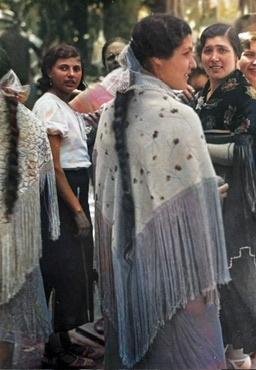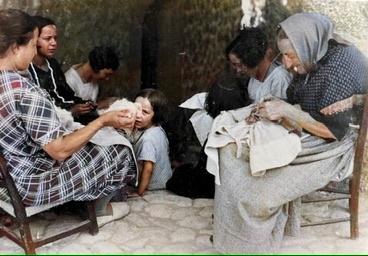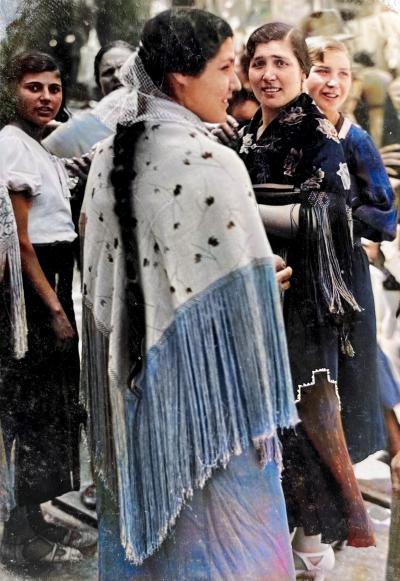How did unmarried women in rural Mallorca contribute to their family's income?
Similar Topics
unmarried women income
rural mallorca economy
agricultural labor women
traditional crafts income
weaving and embroidery
dairy production mallorca
family income support
rural women's economic
In rural Mallorca, unmarried women played an important role in supporting their family’s income through various forms of work closely tied to traditional agricultural and household activities. Given the primarily agrarian economy, these women contributed significantly by assisting in the fields, helping with the cultivation of crops such as olives, almonds, and grapes. Their labor was crucial during planting and harvest seasons, supplementing the efforts of male family members. This participation ensured that the family could maintain a steady production of goods, which could be sold or traded to meet financial needs.
In addition to fieldwork, unmarried women were often skilled in domestic crafts such as weaving, embroidery, and basket-making, which provided additional income sources. These crafts were sometimes sold at local markets, allowing families to diversify their earnings beyond agriculture. Women’s involvement in dairy production, such as making cheese or processing milk, also contributed economically, especially in isolated rural areas where self-sufficiency was key. This combination of agricultural and artisanal work enabled unmarried women to support their families in ways that went beyond traditional household duties.
Their contributions were valued not only because they alleviated some of the economic pressure on the family but also because they provided a form of financial independence and community engagement for the women themselves. By participating actively in both the economy and the social fabric of rural Mallorca, unmarried women played a vital role in sustaining family livelihoods and preserving cultural traditions. Their efforts were integral to the resilience and prosperity of rural households throughout the island.
In addition to fieldwork, unmarried women were often skilled in domestic crafts such as weaving, embroidery, and basket-making, which provided additional income sources. These crafts were sometimes sold at local markets, allowing families to diversify their earnings beyond agriculture. Women’s involvement in dairy production, such as making cheese or processing milk, also contributed economically, especially in isolated rural areas where self-sufficiency was key. This combination of agricultural and artisanal work enabled unmarried women to support their families in ways that went beyond traditional household duties.
Their contributions were valued not only because they alleviated some of the economic pressure on the family but also because they provided a form of financial independence and community engagement for the women themselves. By participating actively in both the economy and the social fabric of rural Mallorca, unmarried women played a vital role in sustaining family livelihoods and preserving cultural traditions. Their efforts were integral to the resilience and prosperity of rural households throughout the island.
🧩 Related Questions
Related Question
What should tourists do if they encounter a religious service while visiting a church in Mallorca?
Related Question
How do local dialects within Mallorca differ from standard Catalan?
Related Question
How do dessert presentations at Mallorcan buffets contribute to the overall dining experience for travelers?



